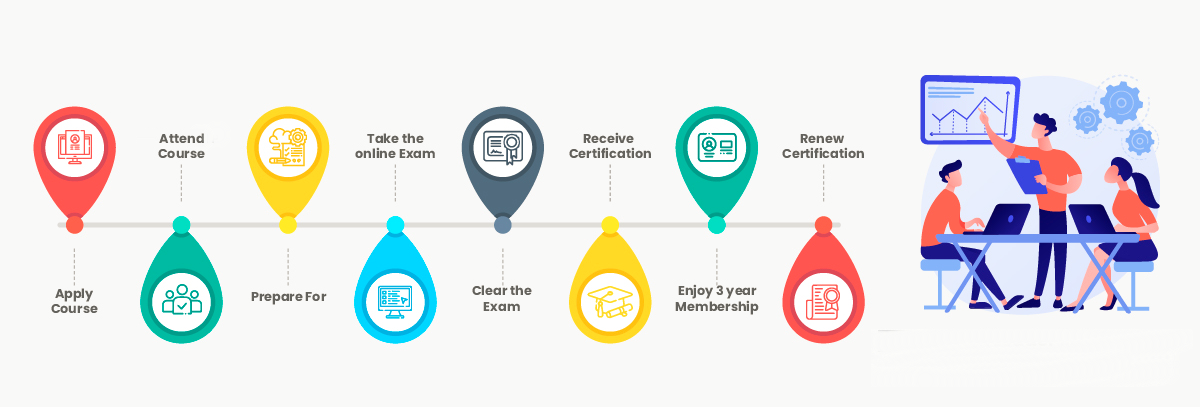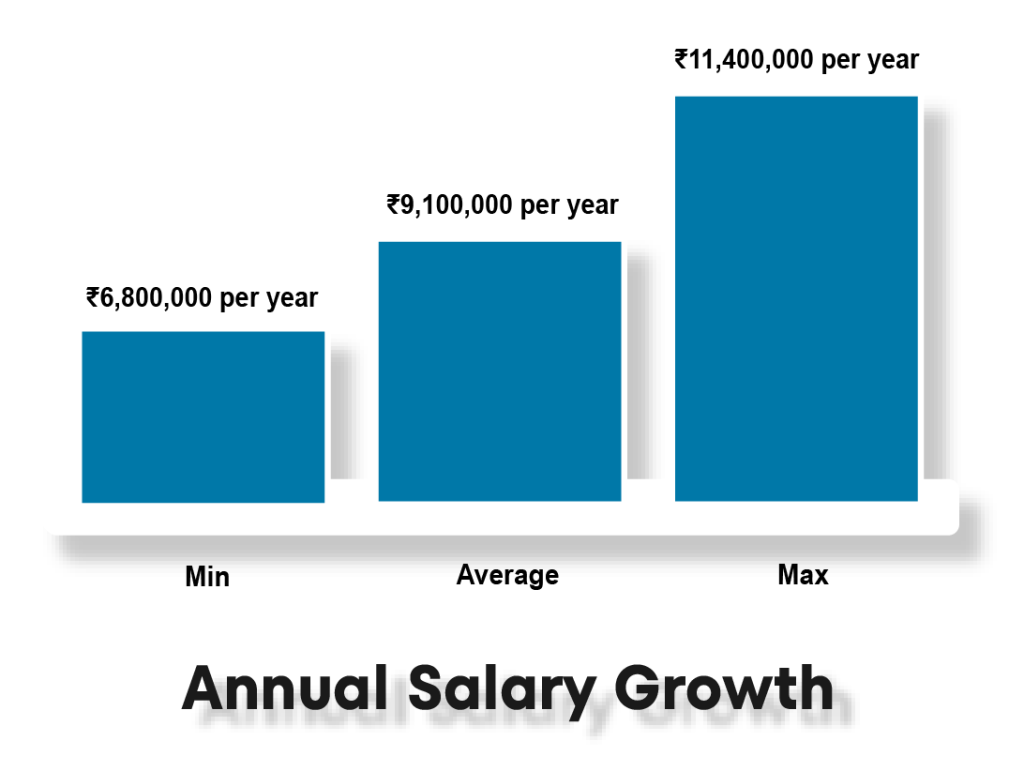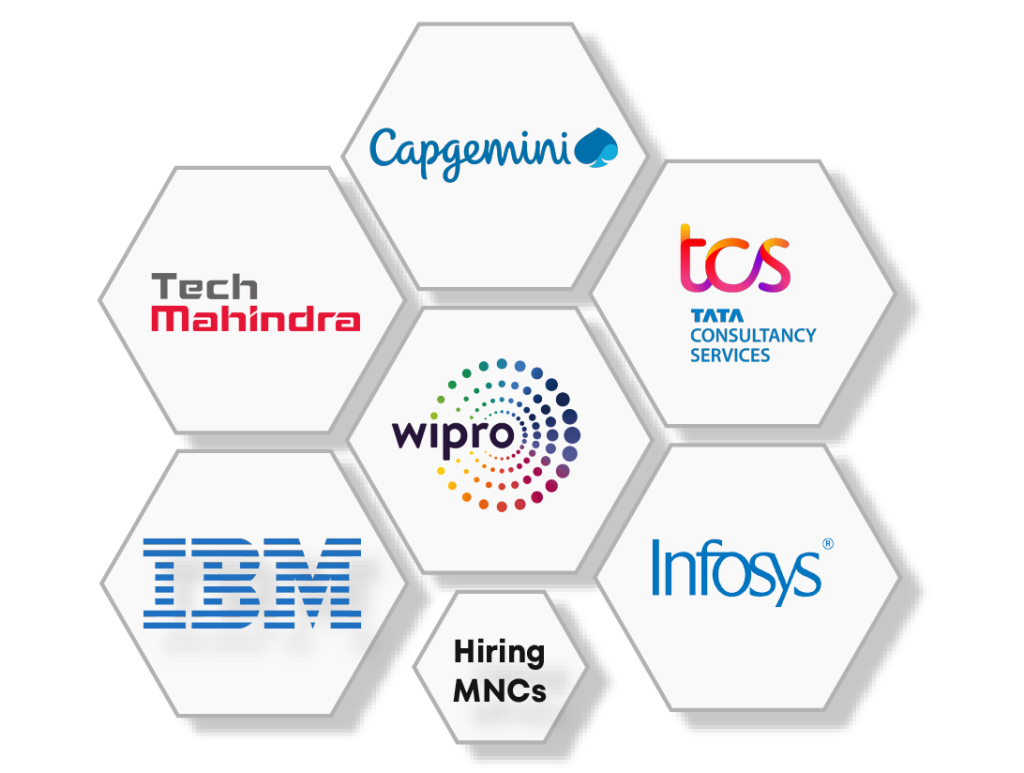
Education Nest offers a Core Java certificate course that follows the latest industry standards and meets the current market demands. The course covers the basic programming language of Java known as ‘Core Java’, which is widely used and has been around for a long time. Java is a general-purpose programming language that uses Object-Oriented Programming (OOPs) concepts. It is an independent and strong programming language that is easy to understand. Core Java is just one part of Java, which has different editions. This online Java training course will teach you everything you need to know about Core Java.
Application Deadline: Jun 30, 2023
Upskill for Your Dream Job
Sambodhi, in partnership with Education Nest, offers a comprehensive Core Java training course. Learn from experienced industry experts with over 10 years of experience in the field. This live project-based training is designed to equip you with the skills necessary to become proficient in Core Java programming. Join the course to gain a deep understanding of Core Java and its application in real-world scenarios.



Instructor-led Core Java live online Training Schedule
May 15th – Weekend
July 1st – Weekend
Why enroll for Core Java Certificate Training Course?

The US Bureau of Labor Statistics predicts a 22% growth in software developers' employment, including Java, due to increased demand. Core Java is among the most used languages.

Java is widely used by businesses of all sizes, and many top MNCs such as IBM, Accenture, and TCS hire Java developers.

Java developer salaries in the US vary based on location, experience, industry, and skills. Average yearly salary increases by 5-10%, ranging from $83,000 to $140,000+.

Core Java Training Course Benefits
Core Java training is essential for anyone looking to build a career in software development. The course provides a solid foundation in the fundamentals of programming, including variables, data types, control structures, and object-oriented programming concepts. By learning core Java, students gain a deep understanding of how to write efficient and effective code that can run on any platform. Additionally, core Java skills are in high demand. Across a wide range of industries, making it an excellent investment for anyone looking to advance their career in technology.

Annual Salary

Hiring Companies
Want to become a Java Programming
Professional?
Why Core Java Certificate Training Course from Education Nest






Core Java Core Java Skills Covered
Core Java Training Course Syllabus
Class :
Objects:
More On Classes:
Nested Classes:
Interfaces:
Inheritances:
Numbers:
Characters:
Strings:
Autoboxing and Unboxing:
try block
catch block
finally block
Chained Exceptions
Creating Own Exceptions
Java I/O Fundamentals:
Generics:
Collection:
Processes And Threads:
Thread Objects:
Synchronization:
Generics:
Collection:
JDBC Introduction:
JDBC Basics:
Class :
Objects:
More On Classes:
Nested Classes:
Interfaces:
Inheritances:
Numbers:
Characters:
Strings:
Autoboxing and Unboxing:
try block
catch block
finally block
Chained Exceptions
Creating Own Exceptions
Java I/O Fundamentals:
Generics:
Collection:
Processes And Threads:
Thread Objects:
Synchronization:
Generics:
Collection:
JDBC Introduction:
JDBC Basics:
Core Java Training Projects

Core Java has a wide range of applications in the retail industry. One example is in the development of point-of-sale (POS) systems, which are used to process transactions and manage inventory in retail stores. Core Java can also be used to develop software for supply chain management, enabling retailers to track inventory levels, shipping times, and delivery dates. In addition, Core Java can be used to develop customer relationship management (CRM) systems, which enable retailers to track customer purchases and preferences, and to provide personalized recommendations and promotions. These projects require a solid understanding of Core Java concepts and techniques, and can provide valuable experience for developers interested in the retail industry.

Core Java is a fundamental programming language widely used in the IT industry for developing various applications, software, and systems. In the IT industry, Core Java projects involve developing server-side applications, web applications, desktop applications, and mobile applications, among others. These projects require a strong understanding of Core Java concepts and techniques, including object-oriented programming, data structures, and algorithms. Developing Core Java projects in the IT industry requires proficiency in Java frameworks such as Spring, Hibernate, and Struts, among others. The popularity of Core Java and its widespread use in the IT industry makes it a valuable skill for developers looking to work on diverse and challenging projects.
Core Java Training Description
The Core Java course is designed to provide learners with a strong foundation in the Java programming language. This comprehensive course covers all essential topics such as variables, data types, control structures, operators, classes, inheritance, interfaces, exceptions, and more. Students will also learn how to use Java’s powerful libraries and frameworks to develop real-world applications. The course is taught by experienced instructors who provide personalized guidance to ensure that learners acquire a deep understanding of the concepts covered. By completing the Core Java course, learners will have the skills and knowledge necessary to create robust and scalable Java applications.
Here are some of the objectives of the Core Java course:
Here are some reasons why learning Core Java is beneficial:
The Core Java course is suitable for anyone who wants to learn Java programming, including:
The pre-requisites for the Core Java course are as follows:
Some other popular software and technologies related to Java are:
JavaScript: JavaScript is a programming language used for creating interactive web pages and web applications. It is often used in conjunction with Java to develop dynamic and responsive web applications.
Spring Framework: The Spring Framework is an open-source application framework that provides comprehensive infrastructure support for developing Java applications. It offers a range of features such as Inversion of Control (IoC), aspect-oriented programming, and integration with other popular frameworks and technologies.
Hibernate: Hibernate is an object-relational mapping framework for the Java programming language that simplifies the process of working with databases. It provides a mapping between an object-oriented model and a relational database, allowing developers to work with objects instead of writing SQL code.
Eclipse: Eclipse is an integrated development environment (IDE) used for developing Java applications. It provides a range of features such as code editing, debugging, and project management, making it a popular choice for Java developers.
Apache Maven: Apache Maven is a software project management and comprehension tool used for building and managing Java-based projects. It provides a centralized location for managing dependencies, builds, and documentation.
Android Studio: Android Studio is the official Integrated Development Environment (IDE) for developing Android applications. It is built on top of the IntelliJ IDEA platform and provides tools and features for developing, testing, and debugging Android applications.
These technologies are commonly used in conjunction with Java to develop robust and scalable applications.
The Core Java course is designed to provide learners with a strong foundation in the Java programming language. This comprehensive course covers all essential topics such as variables, data types, control structures, operators, classes, inheritance, interfaces, exceptions, and more. Students will also learn how to use Java’s powerful libraries and frameworks to develop real-world applications. The course is taught by experienced instructors who provide personalized guidance to ensure that learners acquire a deep understanding of the concepts covered. By completing the Core Java course, learners will have the skills and knowledge necessary to create robust and scalable Java applications.
Here are some of the objectives of the Core Java course:
Here are some reasons why learning Core Java is beneficial:
The Core Java course is suitable for anyone who wants to learn Java programming, including:
The pre-requisites for the Core Java course are as follows:
Some other popular software and technologies related to Java are:
JavaScript: JavaScript is a programming language used for creating interactive web pages and web applications. It is often used in conjunction with Java to develop dynamic and responsive web applications.
Spring Framework: The Spring Framework is an open-source application framework that provides comprehensive infrastructure support for developing Java applications. It offers a range of features such as Inversion of Control (IoC), aspect-oriented programming, and integration with other popular frameworks and technologies.
Hibernate: Hibernate is an object-relational mapping framework for the Java programming language that simplifies the process of working with databases. It provides a mapping between an object-oriented model and a relational database, allowing developers to work with objects instead of writing SQL code.
Eclipse: Eclipse is an integrated development environment (IDE) used for developing Java applications. It provides a range of features such as code editing, debugging, and project management, making it a popular choice for Java developers.
Apache Maven: Apache Maven is a software project management and comprehension tool used for building and managing Java-based projects. It provides a centralized location for managing dependencies, builds, and documentation.
Android Studio: Android Studio is the official Integrated Development Environment (IDE) for developing Android applications. It is built on top of the IntelliJ IDEA platform and provides tools and features for developing, testing, and debugging Android applications.
These technologies are commonly used in conjunction with Java to develop robust and scalable applications.
Core Java Certificate Training Course reviews
Read learner testimonials
Kunal
I had an amazing experience with Sambodhi. The instructors were terrific, and their level of knowledge and education left me astonished. I thoroughly enjoyed the classes and am grateful to Sambodhi for providing such a wonderful learning experience.
Shivani Chauhan
I did not face any difficulties during the course as everything was appropriate. The feedback received after submitting the assessments was always positive with constructive advice. Personally, I believe that the course is well-designed. Overall, it was an enjoyable and informative learning experience that enriched my knowledge.
Gaurav Agarwal
I had a fantastic experience doing this course with Sambodhi. Everyone involved in the program made it an enjoyable and fulfilling experience. I am eagerly looking forward to taking more courses with them in the future and have been recommending them to all my acquaintances. I am grateful for the assistance and feedback provided, which has been delightful and immensely gratifying.
Hear from our learners
Lorem ipsum dolor sit amet, consectetur adipiscing elit. Ut elit tellus, luctus nec ullamcorper mattis, pulvinar dapibus leo.
Lorem ipsum dolor sit amet, consectetur adipiscing elit. Ut elit tellus, luctus nec ullamcorper mattis, pulvinar dapibus leo.
Lorem ipsum dolor sit amet, consectetur adipiscing elit. Ut elit tellus, luctus nec ullamcorper mattis, pulvinar dapibus leo.
Like what you hear from our learners?
Creating Epic Presentations: Communicating Powerful Ideas reviews
Core Java Training FAQs
If you miss an online Core Java Training class, it’s important to reach out to the instructor or the support team of the online training platform you are using. They may be able to provide you with a recording or transcript of the missed class, so that you can catch up on what you missed. Alternatively, some platforms offer on-demand access to class materials, so you can go back and review the content on your own time. It’s always a good idea to try and make up the missed material as soon as possible, so that you don’t fall behind in your learning.
If you have queries after completing an online Core Java Training course, Education Nest training platforms offer some form of post-course support. This may include access to a dedicated support team, a community forum where you can ask questions and connect with other learners, or even one-on-one sessions with an instructor or coach. If you have specific questions or concerns related to the course material, you can reach out to the instructor directly or use the support channels provided by the platform. It’s always a good idea to clarify any doubts or questions you may have, as this will help to solidify your understanding of the material and ensure that you can apply what you’ve learned in a real-world context.
Core Java is the fundamental and basic version of the Java programming language that provides the foundation for developing Java-based applications. It includes the basic features of the Java programming language such as syntax, control statements, data types, and object-oriented programming concepts like inheritance, polymorphism, and encapsulation. Core Java also provides standard libraries and APIs that are used for developing applications. It is widely used in the IT industry for developing web applications, mobile applications, desktop applications, games, and more. Core Java serves as a building block for advanced Java technologies such as Servlets, JSP, Spring, Hibernate, and many others.
The timing of when you get access to learning content after signing up for an online Core Java Training course will depend on the specific training platform you are using. In most cases, you should receive access to the learning content immediately upon signing up, or shortly after your payment has been processed. Some platforms may require you to complete an enrolment process or set up an account before you can access the content. It’s always a good idea to check the specific details of the course or platform you are using, as the timing and process may vary. If you are experiencing any issues accessing the learning content, you should contact the support team of the training platform for assistance.
Once you enrol in Core Java Training course, you will typically have access to the course material for as long as the course remains available on the platform. This means that you can revisit the material at any time, even after you have completed the course, and continue to learn and improve your skills. The benefit of lifetime access to the learning material is that it allows you to learn at your own pace and on your own schedule. You can review the content as many times as you need to fully understand the concepts and techniques covered in the course. Additionally, if you encounter a new challenge in your work or personal life, you can go back to the course material to find solutions and strategies to help you overcome the challenge. Having access to course material for a lifetime is a valuable benefit, as it allows you to continue to improve your skills and knowledge long after you have completed the course. So, if you are interested in improving your Java skills and want the flexibility to learn at your own pace, consider enrolling in a Core Java Training course that offers lifetime access to the learning material.
If you miss an online Core Java Training class, it’s important to reach out to the instructor or the support team of the online training platform you are using. They may be able to provide you with a recording or transcript of the missed class, so that you can catch up on what you missed. Alternatively, some platforms offer on-demand access to class materials, so you can go back and review the content on your own time. It’s always a good idea to try and make up the missed material as soon as possible, so that you don’t fall behind in your learning.
If you have queries after completing an online Core Java Training course, Education Nest training platforms offer some form of post-course support. This may include access to a dedicated support team, a community forum where you can ask questions and connect with other learners, or even one-on-one sessions with an instructor or coach. If you have specific questions or concerns related to the course material, you can reach out to the instructor directly or use the support channels provided by the platform. It’s always a good idea to clarify any doubts or questions you may have, as this will help to solidify your understanding of the material and ensure that you can apply what you’ve learned in a real-world context.
Core Java is the fundamental and basic version of the Java programming language that provides the foundation for developing Java-based applications. It includes the basic features of the Java programming language such as syntax, control statements, data types, and object-oriented programming concepts like inheritance, polymorphism, and encapsulation. Core Java also provides standard libraries and APIs that are used for developing applications. It is widely used in the IT industry for developing web applications, mobile applications, desktop applications, games, and more. Core Java serves as a building block for advanced Java technologies such as Servlets, JSP, Spring, Hibernate, and many others.
The timing of when you get access to learning content after signing up for an online Core Java Training course will depend on the specific training platform you are using. In most cases, you should receive access to the learning content immediately upon signing up, or shortly after your payment has been processed. Some platforms may require you to complete an enrolment process or set up an account before you can access the content. It’s always a good idea to check the specific details of the course or platform you are using, as the timing and process may vary. If you are experiencing any issues accessing the learning content, you should contact the support team of the training platform for assistance.
Once you enrol in Core Java Training course, you will typically have access to the course material for as long as the course remains available on the platform. This means that you can revisit the material at any time, even after you have completed the course, and continue to learn and improve your skills. The benefit of lifetime access to the learning material is that it allows you to learn at your own pace and on your own schedule. You can review the content as many times as you need to fully understand the concepts and techniques covered in the course. Additionally, if you encounter a new challenge in your work or personal life, you can go back to the course material to find solutions and strategies to help you overcome the challenge. Having access to course material for a lifetime is a valuable benefit, as it allows you to continue to improve your skills and knowledge long after you have completed the course. So, if you are interested in improving your Java skills and want the flexibility to learn at your own pace, consider enrolling in a Core Java Training course that offers lifetime access to the learning material.
Be future ready, start learning